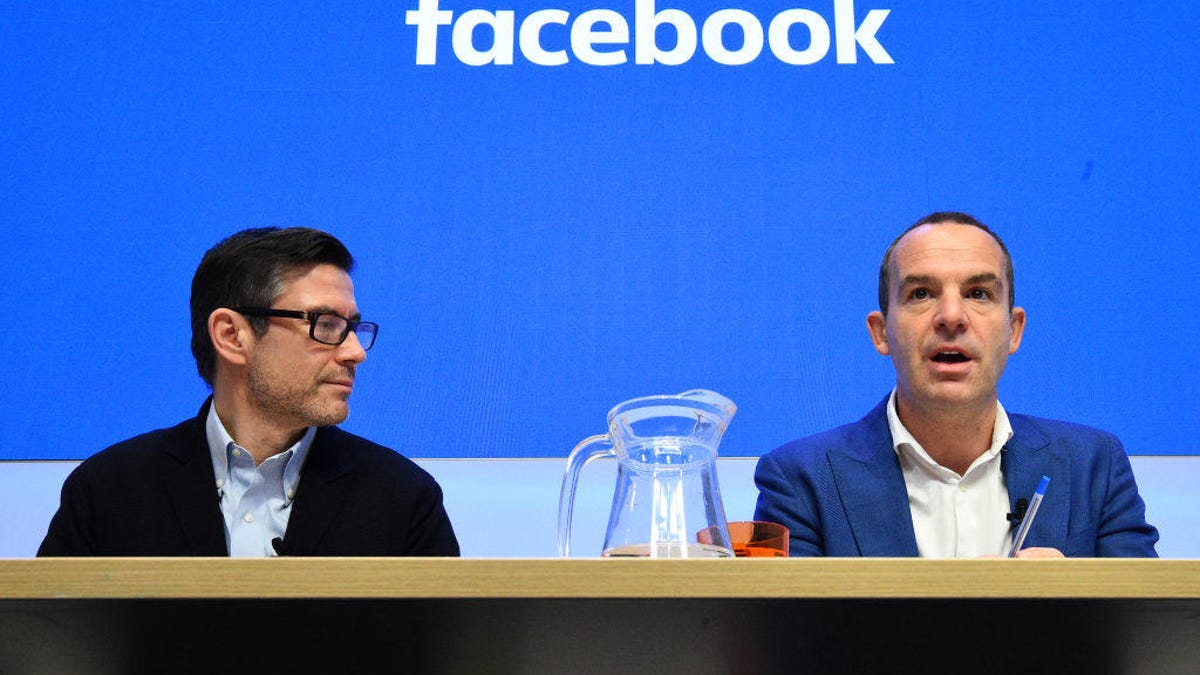Facebook debuts tool to report scam ads that feature false celeb endorsements
The UK-only feature (for now) is helping the social media giant avoid legal action from consumer advocate Martin Lewis.

Martin Lewis, right, drops his lawsuit against Facebook.
Facebook launched a UK-specific tool on Wednesday for people to report scam ads they spot across the platform.
At the same time, the social network said it's donating £3 million ($3.9 million) to set up an action project, due to launch in May, with charity group Citizens Advice that would help people deal with scams. Facebook announced the tool at a joint press conference in London with consumer advocate Martin Lewis.
Last year Lewis commenced legal proceedings to sue Facebook for allowing adverts that falsely bore endorsements from him and his website MoneySavingExpert.com. At the press conference, he said he's dropping his suit against the company. Instead of pursuing legal action, he has worked together with Facebook to develop a solution, the two said.
Facebook admitted it had struggled with allowing ads onto its platform that use fake endorsements, including those of celebrities, in order to dupe its users into parting with their money. Scammers and fraudsters refine their techniques as tech evolves, it said, but Facebook wants the new tools to serve as protection and also provide people with a place to get help should they fall victim to a shady ad.
The reporting tool will allow users to flag ads that look suspicious, with reports being handled by a dedicated internal operations team. For now, the tool will be UK only, although if it proves useful and successful, it could eventually roll out to other markets.
The Citizens Advice "scam actions project" will combine a public awareness campaign to help people recognize scams with one-to-one advice for victims. Facebook will provide support on the technology side, but Citizens Advice will otherwise run the project independently.
Steve Hatch, Facebook's regional manager for Northern Europe, thanked Lewis for bringing attention to the issue and advising the company how to proceed. The new tools are "part of a wider commitment to tackling scams and to ensuring people are given more transparency and controls over the ads they see on Facebook," he said.
"It shouldn't have taken the threat of legal action to get here," said Lewis in a statement. "Yet once we started talking, Facebook quickly realised the scale of the problem, its impact on real people, and agreed to commit to making a difference both on its own platform, and across the wider sector."
Taking It to Extremes: Mix insane situations -- erupting volcanoes, nuclear meltdowns, 30-foot waves -- with everyday tech. Here's what happens.
Cambridge Analytica: Everything you need to know about Facebook's data mining scandal.

